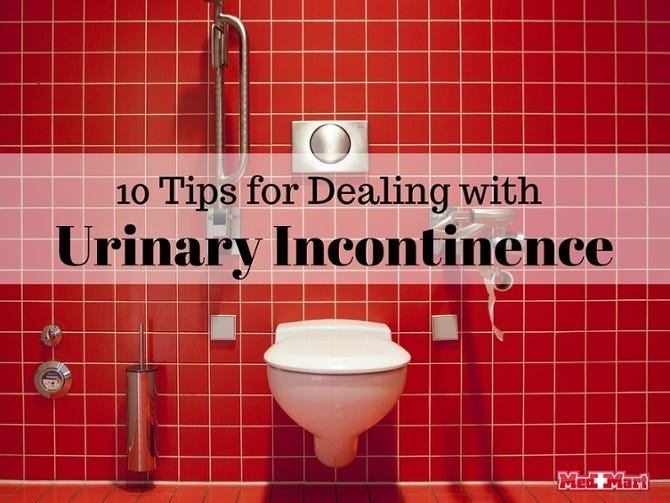Urinary incontinence is a frustrating and embarrassing condition, but it is manageable. Here are ten tips that can help you to deal with urinary incontinence.
Empty Your Bladder Regularly
Make a point of emptying your bladder every one to two hours, rather than waiting until you feel like you need to empty your bladder. Emptying your bladder on a regular basis can help to avoid the risk of accidents.
Monitor Your Water Intake
While it may be tempting to dramatically reduce your water intake, this can lead to dehydration, which is not good for your bladder or your kidneys. Instead, drink about eight glasses of water a day – just don’t drink in excess, which can worsen urinary incontinence symptoms.
Do Pelvic Floor Exercises
Pelvic floor exercises can help to strengthen your pelvic floor, reducing the risk of accidents. However, in order for them to be effective, you need to do pelvic floor exercises regularly, and it takes time for you to strengthen those muscles.
Keep Toilets Accessible
Organize your home so that you have a clear path to the bathroom. When you’re out in public, identify where the nearest restroom is located. Having a clear path to the toilet can save you valuable time.
Consider Diapers or Protective Underwear
Wearing
diapers or
protective underwear can provide you with added security and reassurance. There are many styles of these items available, so you’re sure to find a type that works just right for you. To know more about adult diapers check
The Raw Facts About Adult Diapers.
Bladder Control Pads
If you want the protection of diapers but don’t want all of the added bulk, consider bladder control pads. These pads offer you excellent protection but have a more discreet, minimalistic fit.
Reduce Your Caffeine Intake
Love coffee, tea, or soda? Try to curb your intake. These caffeine drinks are diuretics, meaning that they will cause your body to produce more urine in order to get rid of the excess water and salt that you’ve ingested.
Protect Your Furniture
Accidents do happen, but it can be difficult to clean a couch or a bed after an accident. Consider using underpads to keep your furniture protected from leaks.
Keep Wipes and Cloths Handy
Keeping some wipes and cloths in your bathroom can make cleanup easier. Cleansing cloths can leave you feeling refreshed without the need for a full bath.
Work with Your Doctor
Your doctor can provide you with more advice which is tailored to your type of incontinence and specific medical issues. Your doctor is an important ally and may suggest medication or surgery to help with the effects of long-term urinary incontinence.
Dealing with urinary incontinence may require some lifestyle changes, but these tips, along with working closely with your doctor, can help you to manage the condition.

